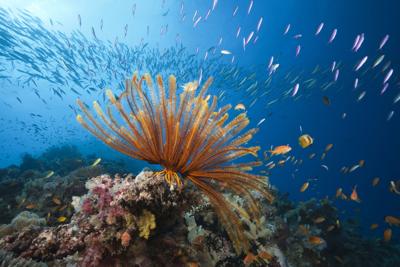The Great Barrier Reef, a UNESCO World Heritage site and one of the most biodiverse ecosystems on the planet, is facing unprecedented threats due to rising ocean temperatures. Recent studies indicate that global warming, primarily driven by anthropogenic carbon emissions, has led to an alarming increase in sea surface temperatures. This phenomenon has dire consequences for coral reefs, which are highly sensitive to temperature fluctuations. When water temperatures exceed optimal levels, corals undergo a process called bleaching, whereby they expel the symbiotic algae (zooxanthellae) that provide them with essential nutrients and their vibrant colors.
Coral bleaching is not merely an aesthetic concern; it poses significant risks to marine biodiversity and coastal economies that rely on reef ecosystems. The loss of coral cover can lead to diminished habitat for countless marine species, disrupting food webs and diminishing fish populations that are crucial for both ecological balance and human livelihoods. Furthermore, healthy reefs serve as natural barriers against storm surges and coastal erosion. As the integrity of these structures declines due to thermal stress, coastal communities become increasingly vulnerable to extreme weather events exacerbated by climate change.
A group of scientists at universities across Australia drilled cores into the coral and, much like counting the rings on a tree, analysed the samples to measure summer ocean temperatures going back to 1618.
Combined with ship and satellite data going back around a hundred years, the results show ocean temperatures that were stable for hundreds of years begin to rise from 1900 onwards as a result of human influence, the research concluded.
If global warming is kept under the Paris Agreement’s limit of 1.5°C above pre-industrial levels, as much as 90% of the world’s coral reefs could still be lost, the scientists said.
Study co-author Benjamin Henley said he hoped the findings would prompt UNESCO to rethink its 2023 decision to postpone putting the Great Barrier Reef on the list of world heritage sites “in danger,” a designation that would bring substantial monetary support from the World Heritage Fund.
Prof Terry Hughes, a leading expert on coral bleaching at James Cook University who was not involved in the study, said: “This new study … confirms very convincingly that coral bleaching and mass mortality in the [Great Barrier Reef] region is a modern phenomenon caused by anthropogenic heating.
“It blows out of the water the persistent false claims that coral bleaching is somehow normal or cyclical.”
Prof Peter Mumby, a University of Queensland reef scientist who was not involved in the research, said the patterns of heat in recent years were now “well established”. But he said the study authors were “overly pessimistic” about the future because different parts of the reef and corals were not responding uniformly to the rising heat.
Read more
Google Delivers New AI Models With Security Guarantees
Sonos is delaying two product launches until it fixes its app
Sarah H
Also on site :
- Gemini converts Google Docs to podcasts
- Jonathan Ross opens up about why he decided to quit alcohol
- Bottling your essence: Meghan Markle and the death of self-help speak

